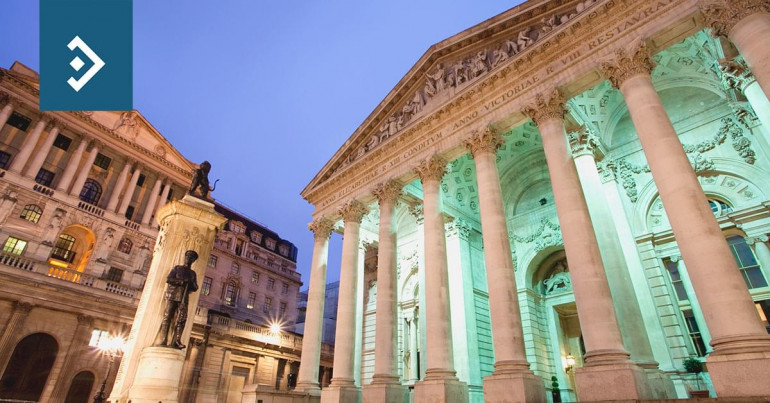
Pill a BoE dove
Morning mid-market rates – The majors
26th July: Highlights
- UK output continues to slow, but no recession yet
- Conflicting signals put pressure on FOMC
- PMI’s below 50 as recession beckons
GBP – Big rate hikes could leave the UK in a deep recession
His message was that high and rising inflation needs to be tackled by tighter monetary policy, but that will see the economy produce no increase in growth.
He agrees with the Bank’s Governor that bringing inflation down is and indeed should be the most important focus of its current policy.
An increase in the size of hike at the next meeting, compared to those that have come before since the Bank started tightening policy last December, is certain for next week’s MPC meeting.
Andrew Bailey has been providing advance guidance that a fifty-point hike is on the cards, with core inflation continuing to rise as the headline begins to level off.
Bailey commented a few months ago that he believed that headline inflation would top out at 11%. While that is still possible, particularly as gas prices are set to soar again. It may be that given the recent fall in the price of fuel, his view may now be a little pessimistic.
The two candidates for the Leadership of the Conservative Party met for a televised debate last night and traded blows about their plans to revive the economy.
Rishi Sunak was quick to point out that Liz Truss was a Remainer in the Brexit vote, while the Foreign Secretary warned that the former Chancellor’s policies would deepen inflation.
Sunak acknowledged that he was against cutting taxes immediately despite the warnings over economic growth, since that would add more fuel to the flames of inflation.
Truss believes that Sunak’s determination to pay back debt that was accumulated during the Pandemic will lead to him crashing the economy without a reason that is based on necessity. Sunak countered by accusing Truss of putting things off by simply kicking the can down the road.
It is expected that the debate will become even more fractious as the differences between the two, both personal and professional, come under even closer scrutiny.
Truss remains the favourite to win on September 8th, while Sunak hopes that Party members will consider performance during the pandemic as giving him the credentials to become Prime Minister.
The pound has risen for seven of the last eight sessions and is slowly beginning to pull away from the 1.20 level. There is likely to be some selling around the 1.2120 level, but above that the current support will start to gain pace. Yesterday it reached a high of 1.2086, closing at 1.2042.
Recommend our services and earn up to £75 per successful referral
USD – You cannot please all the people all the time
Warren is the Democrat Senator from Massachusetts and has served since 2013. She has been far and away the most vociferous critic of Fed policy and was instrumental in the monumental delay in Powell’s confirmation for his second term.
She has accused the FOMC of hiking rates, blindly believing that eventually, they would dampen demand without attacking the real cause of rising prices.
So far, she has been proven correct that rising fuel and food prices are not going to be affected by hikes in rates.
Powell counters by saying that the level of interest rates has been a continual stimulation to the economy for too long, particularly when coupled with the stimulation provided by the Federal Government support programmes during the Pandemic.
The FOMC convenes today to consider a further hike in rates, although according to most commentators, their debate has a foregone conclusion. Another seventy-five basis points, bringing the Fed Funds Target to 2.50% is almost certain.
There is a growing feeling that, despite his more hawkish tendencies, that Powell may deliver a less hawkish or even a more dovish statement following the announcement.
With 2.50% being the level many FOMC members believe to be the neutral rate, there may be an opportunity to pause and observe the effect of continual hikes on the wider economy.
Employment is key to rising inflation and with no slowdown seen in the headline non-farm payrolls, or any significant rise in weekly jobless claims, the Fed may be encouraged to take rates into restrictive territory.
With two employment reports to be released before the next FOMC meeting, things could have changed radically before another vote takes place.
The dollar index remains in a state of correction, but a less hawkish view coming from the FOMC could turn the tide and see the Greenback begin to trend lower.
Yesterday, the dollar index fell to a low of 106.18, closing at 106.48. It remains supported at 106.20, but that support could crumble very quickly should Jerome Powell turn out to be a hawk in dove’s clothing.
EUR – Lagarde has the hawkish bit between her teeth
She confirmed yesterday that the Bank would continue to hike until inflation had been brought back to its target level of around 2%.
An announcement from Russia yesterday that essential maintenance would significantly reduce the flow of gas through the Nordstrom 1 gas pipeline, will come as another significant blow to the Eurozone economy.
The current supply of 40% capacity will be cut in half by the need to stop another turbine. The German Government countered by confirming that there is no technical reason to limit supply.
This makes it now even less likely that stores of gas will be able to be replenished before winter.
Data released recently shows that the German economy is now on the brink of a recession.
The Chief Economist for the influential IFO institute based in Munich commented yesterday that its most recent survey shows that high energy prices and gas shortages are weighing on growth. In the services sector in particular, the business climate has declined significantly.
Pessimism about the manufacturing sector is at its highest level since the start of the Pandemic.
Despite the gloomy outlook, the Governor of the Bank of Latvia and ECB Governing Council Member, Martins Kazaks predicted yesterday that there would be a further significant hike in interest rates at the next ECB meeting.
He went on to say that the discussion should be about an even larger hike than the fifty basis-points seen last week.
The Russian threat to gas supplies comes as Ukraine clings to its hopes that an agreement reached to allow grain shipments to depart from its ports unhindered will hold, despite reports of an attack on the major port city of Odessa.
Any further disruption will lead to an increase in food price inflation that has become a significant contributor to the rise in Eurozone inflation.
The euro continues to teeter on the brink of a sustained fall through parity versus the dollar. However, should the Fed turn even slightly more dovish at its meeting this week, the euro may give bears a better level at which to begin to sell again.
Yesterday, it continued to threaten resistance at 1.0275, but could only reach a high of 1.0258 before falling back to close at 1.0220.

About Alan Hill
Alan has been involved in the FX market for more than 25 years and brings a wealth of experience to his content. His knowledge has been gained while trading through some of the most volatile periods of recent history. His commentary relies on an understanding of past events and how they will affect future market performance.”



